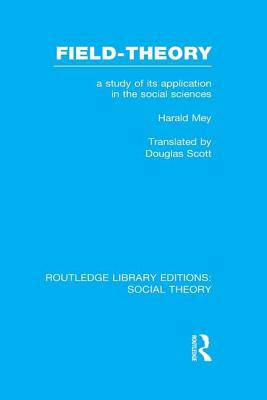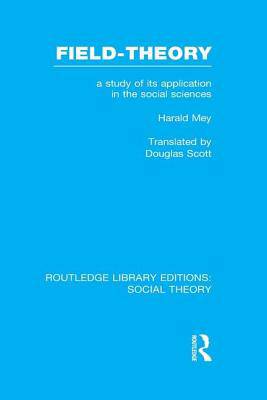
- Retrait gratuit dans votre magasin Club
- 7.000.000 titres dans notre catalogue
- Payer en toute sécurité
- Toujours un magasin près de chez vous
- Retrait gratuit dans votre magasin Club
- 7.000.000 titres dans notre catalogue
- Payer en toute sécurité
- Toujours un magasin près de chez vous
Description
This is an important account of the development of the 'field-theory' approach in the social sciences. Harald Mey concentrates on the writers from the 1930s to the present day who have used this approach to the study of the individual and of society, and gives a clear exposition of such 'field-theory' application in its many differing forms. In addition, the author shows how a concept which was initially useful in the physical sciences came to be used first by psychologists, and subsequently by sociologists and others in related disciplines, in their search for answers to the problems presented by the study of society. Mey describes how the use of the 'field-theory' perspective has fared when applied to specific areas of social research - education, personal relationships, group behaviour. He also compares the 'field-theory' approach to the study of societies with the structural/functional approach, and explains why he believes 'field-theory' has a number of advantages over the structural/functional approach, especially when it comes to the dynamic problem of social change.
Spécifications
Parties prenantes
- Auteur(s) :
- Editeur:
Contenu
- Nombre de pages :
- 348
- Langue:
- Anglais
- Collection :
Caractéristiques
- EAN:
- 9781138969728
- Date de parution :
- 09-12-15
- Format:
- Livre broché
- Format numérique:
- Trade paperback (VS)
- Dimensions :
- 156 mm x 234 mm
- Poids :
- 485 g







